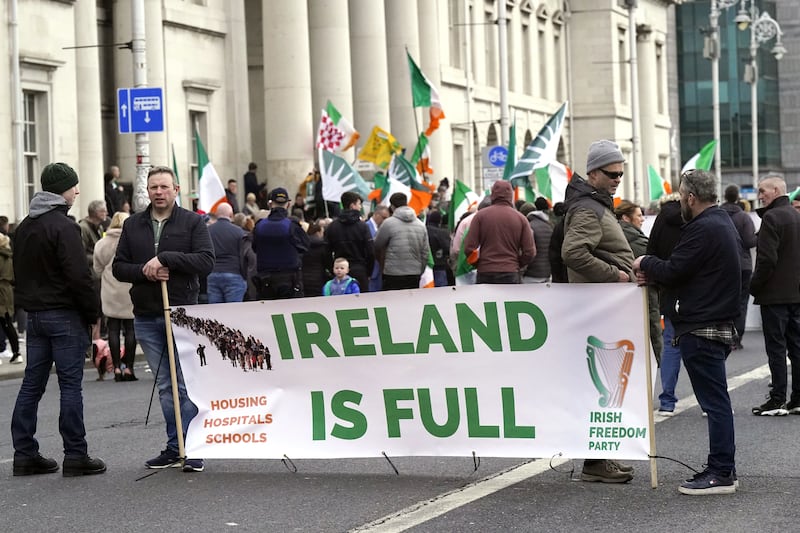Do you remember when unionists used to call for the border to be sealed? They said that what they called political subversives from the south were not welcome in the north – a sentiment echoed in the song “‘Up the border, keep the border’ is my cry”.
Well, haven’t times changed?
Now nationalists might like to sing that same song. They are calling for measures to stop what other countries call political subversives crossing from north to south. The open border they demanded after Brexit has, they claim, become an open door for migrants to enter the 26 counties from Britain.

Welcome to the world of changing perceptions on the border.
This latest twist in Irish politics has its origins in European colonialism which exploited much of the rest of the world through political repression and economic slavery. By the early 20th century, for example, all of Africa was owned by seven European countries.
Although most former colonies gained what they thought was independence, many just became neo-colonies, where Western exploitation continued through the local administration.

The resultant political repression, poverty and starvation drive about 400,000 undocumented migrants annually into the EU. Some come as economic migrants, others as political refugees. All seek a future in the European source of their misery.
Ireland was a victim of colonialism, but it is now a loyal member of the EU, along with Europe’s former colonial powers. In February, Ireland had the third highest asylum claims per head of population in the EU, behind Greece and Cyprus.
In its loyalty to the EU, the Irish government has been willing to turn a blind eye to migrants. However, by failing to increase the level of public services in line with migration, it has triggered anti-immigration protests. The response to the problem has been to blame Britain.

Justice Minister Helen McEntee said that 80 per cent (which she increased this week to 90%) of asylum seekers arriving in Dublin have come from Britain through the north. Last month she said that the route taken by immigrants was not recorded.
As well as the (unknown) numbers from Britain, Ireland has agreed to join an EU migration pact which states that Ireland’s “fair share” of immigrants will be based on its population size (which is increasing with immigration) and its economic wealth.
Ireland’s quota would rise from one per cent of all EU immigrants to over two per cent. That means taking twice as many migrants.

Since Britain, rather than the EU, is seen as the cause of the problem, draft legislation this week in Dublin will allow Ireland to return undocumented immigrants to the UK. (The north, in case you forgot, is in the UK.)
Britain says it will not take them back, because the EU will not take back its undocumented migrants crossing the English Channel.
The key difference here is that whereas Britain can determine its own policy on migrants (and a terrible policy it is), Ireland’s policy is decided in Brussels (and it is not much better). Although Brexit was largely a working-class protest against the establishment, it also contained a strong anti-immigrant sentiment.

So far, anti-immigrant protests in the south have not significantly highlighted Ireland’s EU membership, but that is clearly coming.
Already Sinn Féin (the most pro-EU of all nationalists) has said it wants an Irish immigration policy without “interference from Brussels”. (Oh dear, is that any way to thank the EU for its creation of the Irish Sea border? Will the party now want the Windsor Framework changed to prevent Brussels “interference” in the north?)
Last week Sinn Féin TD Donnchadh Ó Laoghaire said his party is “opposed to open borders” (cheers from unionists), even though the EU is built on the principle of the free movement of goods and people.
Will a Sinn Féin first minister in the north refuse to take back immigrants from the south, or will Ireland send migrants directly to Britain?
So, will a SF first minister in the north refuse to take back immigrants from the south, or will Ireland send migrants directly to Britain, from where they can easily return to the north?
At its EU election campaign launch, Sinn Féin said it would only support EU policies which were “good for Ireland”. The party is a good barometer of the public mood, so expect the spectre of Irexit (Irish exit from the EU) to become an Irish general election issue.
Emigration was one factor which persuaded Ireland to join the EU. Immigration is now causing some to question that membership. There are unchartered waters ahead for Irish politics.


